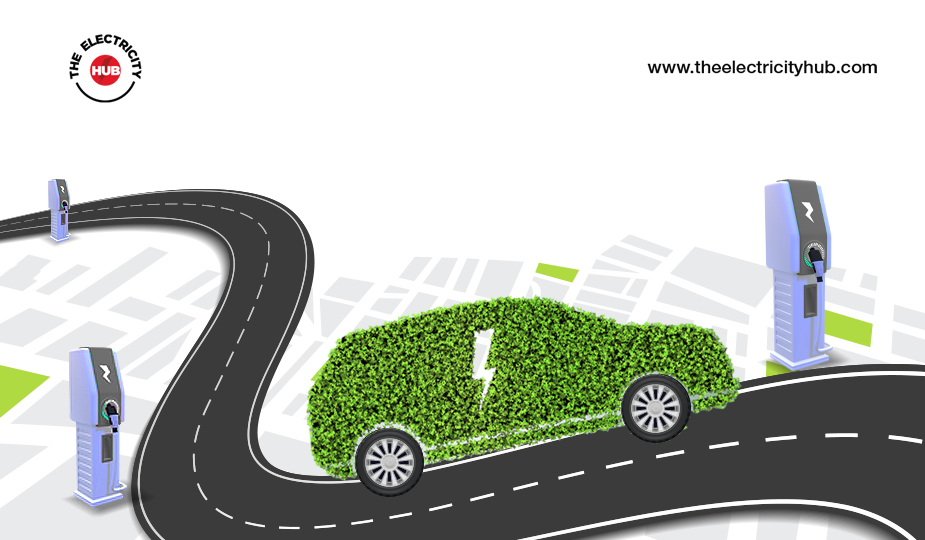
In the modern world, transportation is essential for bridging large distances between people, products, and services. However, the use of fossil fuels for transportation has dramatically increased carbon emissions and climate change on a worldwide scale. Nigeria must begin transport decarbonisation to assure a greener and more resilient future as countries worldwide work towards cleaner and more sustainable energy systems. Nigeria, which has the largest economy and most people in Africa, presents particular difficulties and opportunities in decarbonising its transportation industry. The need for transportation is continuously increasing due to urbanisation and a fast-expanding population, which impacts the environment and increases energy use. Nigeria must therefore address the transportation sector’s carbon footprint to reduce greenhouse gas emissions and improve air quality.
Promoting and utilising electric vehicles (EVs) is one of Nigeria’s primary measures for decarbonising transportation. EVs provide a cleaner alternative to traditional internal combustion engines because they are powered by electricity and emit no exhaust emissions. Promoting electric vehicles (EVs) can help cut carbon emissions dramatically, especially in highly populated urban areas where vehicular pollution is a serious issue.
Nigeria must make investments in the creation of charging infrastructure around the nation to encourage the use of EVs. Range anxiety can be reduced, and EV users will have convenient charging options if a reliable charging station network is established in urban areas, highways, and public areas. In addition, encouraging policies like tax breaks and subsidies can increase the affordability and allure of EVs for consumers. The country should consider additional environmentally friendly transportation options, such as public transit networks with buses, trains, and electric vehicles. Putting money into dependable public transit can reduce the number of private cars on the road, reducing traffic and emissions. The effectiveness and convenience of public transportation can be increased, promoting its widespread acceptance, by integrating smart technology and sophisticated ticketing systems. Additionally, encouraging active modes of transportation like cycling and walking can have a number of advantages. Developing dedicated bike lanes and encouraging pedestrian-friendly infrastructure will lower carbon emissions and enhance the quality of life and public health. Such actions can help ease traffic congestion and encourage the development of more sustainable urban environments.
Using biofuels from sustainable feedstocks is a practical way to cut transportation-related carbon emissions. Nigeria may diversify its energy sources and lessen its dependency on fossil fuels by encouraging the production and use of biofuels. Growing energy crops in partnership with nearby farmers and the agricultural industry can open new business options and promote rural development. Effective policy frameworks and regulations are critical to advancing transportation decarbonisation efforts. Nigeria should set specific goals for lowering carbon emissions from the transportation sector and create elaborate plans to reach those goals. Adopting greener technology will be encouraged by implementing fuel efficiency requirements, emissions laws, and financial incentives for low-carbon transportation.
In addition, encouraging public-private partnerships is essential for putting transport decarbonisation initiatives into action successfully. Working with foreign organisations, businesses, and research institutions can facilitate knowledge sharing, technical breakthroughs, and monetary investments. Engaging partners from many industries will guarantee a comprehensive strategy for addressing the difficult problems associated with transport decarbonisation. Transportation decarbonisation is necessary for the environment and a chance to boost the economy and create jobs. Creating a sustainable transportation industry may draw funding, spur innovation, and create jobs in electric vehicles, charging stations, renewable energy, and alternative fuels.
In conclusion, Nigeria is in a crucial position to embrace transport decarbonisation as an essential part of its sustainable development program. Nigeria can dramatically lower carbon emissions, enhance air quality, and advance public transportation by promoting electric cars, investing in charging infrastructure, expanding public transportation, supporting active transportation, and investigating alternative fuels. Robust legislative frameworks, stakeholder cooperation, and public awareness campaigns will be necessary to hasten the transition to a low-carbon and sustainable transportation industry as the country progresses towards a greener future.